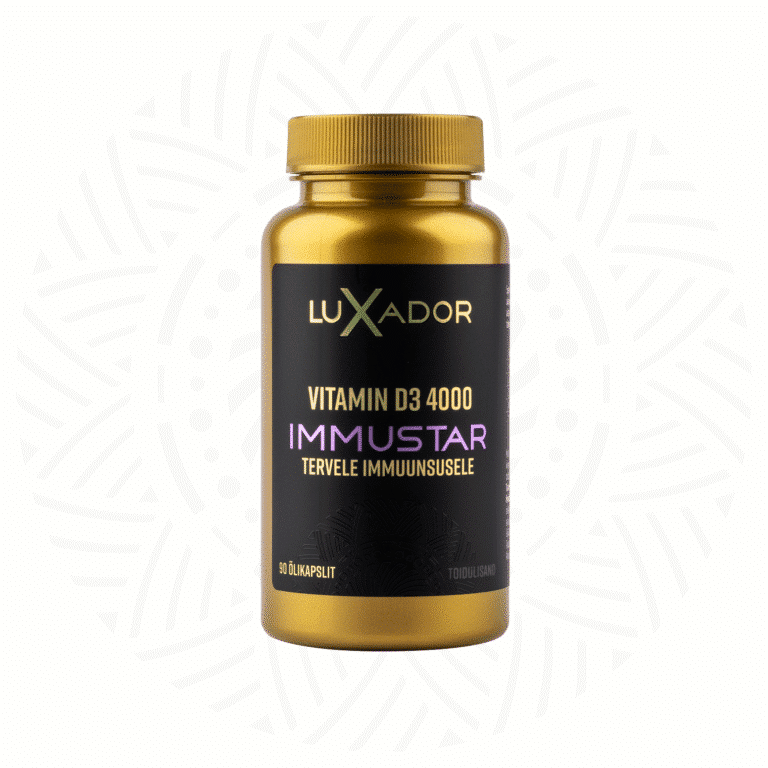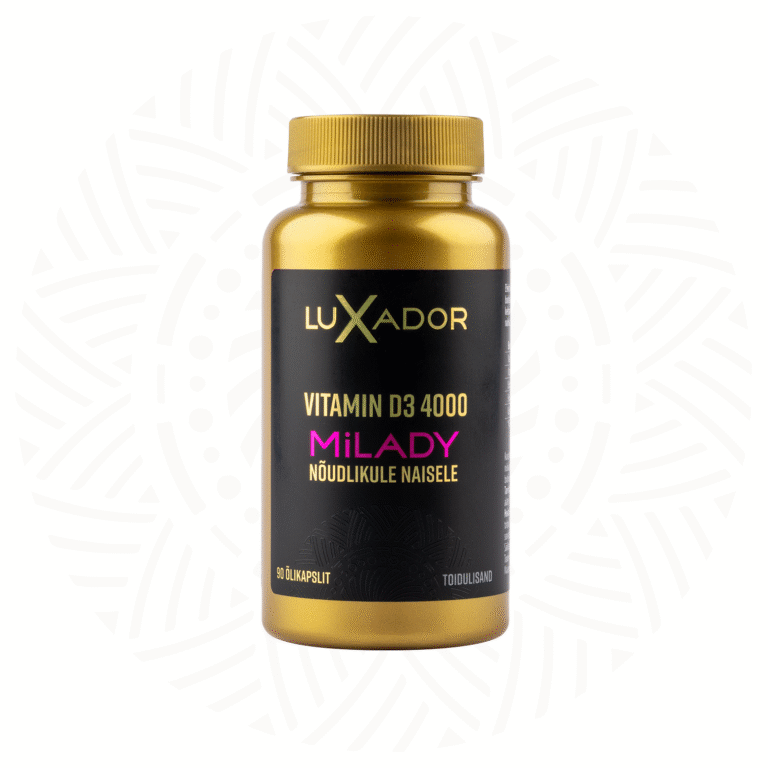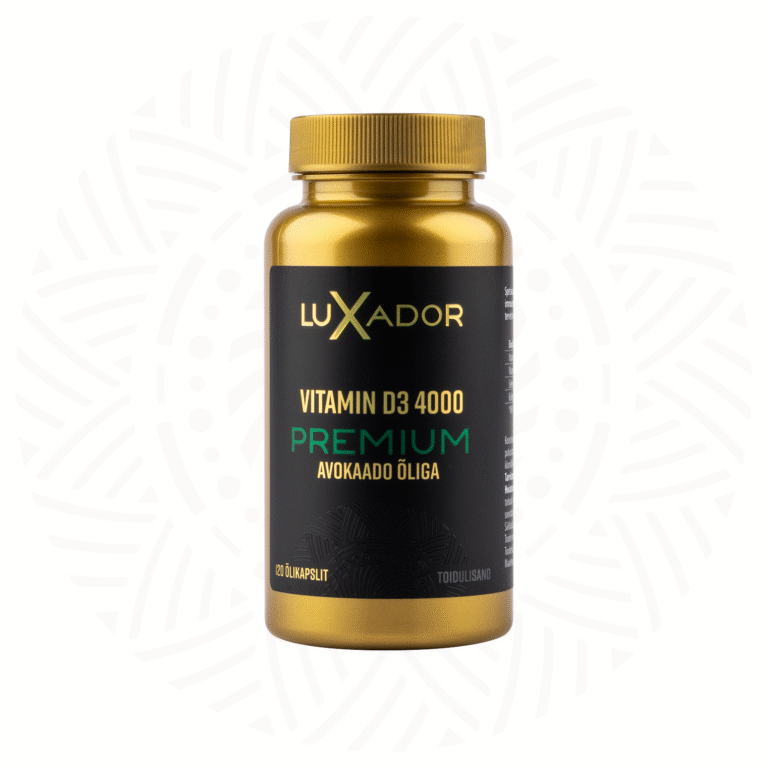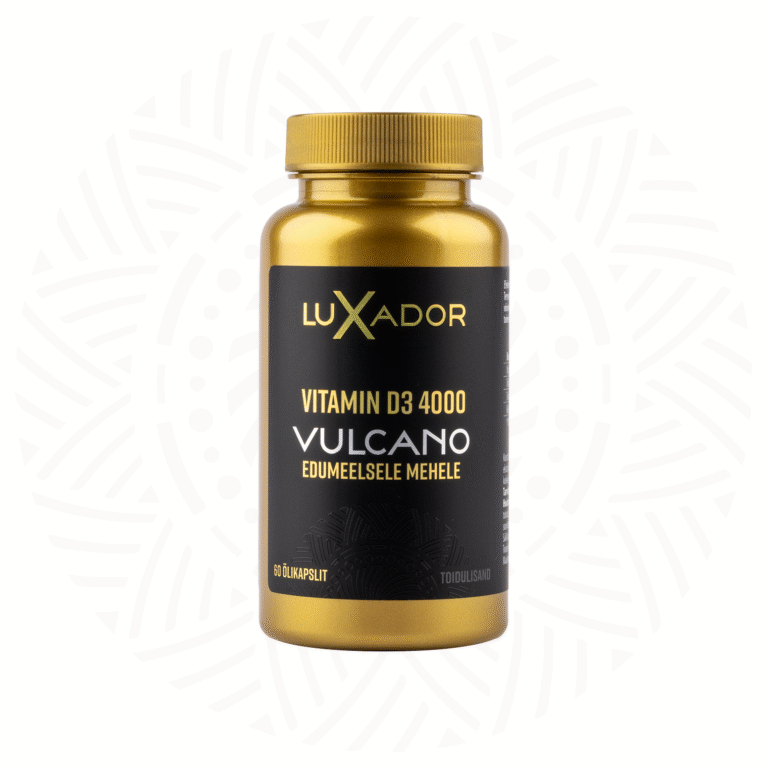Who wouldn’t want to maintain a youthful appearance and good health for as long as possible? Unfortunately, aging is a natural process that brings various changes to both the skin and the body as a whole. Wrinkles and reduced skin elasticity are inevitable signs of aging that we all encounter sooner or later.
But don’t be discouraged! You can effectively combat the signs of aging! Hyaluronic acid is a revolutionary substance that helps slow down the aging process and maintain a youthful appearance and better health. Below, we take a closer look at why premature skin aging occurs and how to choose the best hyaluronic acid to slow down these processes.
What is Hyaluronic Acid?
Hyaluronic acid is a naturally occurring carbohydrate in our skin that attracts water and helps keep the skin hydrated and plump. A large portion of the hyaluronic acid in our body is found in the skin, but it is also present in the eyes, skeleton, blood vessels, and umbilical cord.
Although the term “hyaluronic acid” may sound chemical and intimidating, this substance is naturally present in our body and gives the skin a soft, elastic, and youthful appearance. However, over the years, the skin’s natural ability to produce hyaluronic acid decreases, significantly affecting its appearance.
By the age of 50, the amount of hyaluronic acid in the body is twice as low as it was at 20. As soon as the skin’s hyaluronic acid levels drop, it becomes drier, and the first signs of aging—fine lines and wrinkles—appear.
By using skincare products containing hyaluronic acid—such as hyaluronic acid serums, creams, and supplements—it is possible to slow down the aging process.
Where is Hyaluronic Acid Found?
Hyaluronic acid is a substance found in almost all organs: in bones, connective tissues, blood, and, of course, in the skin. We are born with high hyaluronic acid levels in the body, but starting from the age of 25, the concentration of hyaluronic acid in the body begins to decrease, and by the age of 50, its levels are twice as low as in youth.
- Skin: The skin is one of the main areas where hyaluronic acid is most abundant. It makes up a large part of the extracellular matrix of the skin, ensuring its structure, moisture, and elasticity. As we age, hyaluronic acid production in the skin decreases, leading to dryness and wrinkle formation.
- Joints: Hyaluronic acid is an essential component of joint fluid, which reduces friction and ensures smoother movement.
- Eyes: Hyaluronic acid is present in the vitreous body of the eye, helping maintain eye shape, supporting good vision, and keeping the eyes moisturized.
- Connective Tissue: Hyaluronic acid is found in connective tissues that support and connect different parts of the body.
What Are the Benefits of Using Hyaluronic Acid?
The levels of hyaluronic acid in the body start to decline from the age of 25. As a result, we experience skin dryness, reduced elasticity, and the appearance of wrinkles at a faster rate. This is why the first fine wrinkles may appear around the eyes as early as in the 30s.
Hyaluronic acid supplements provide a quick way to restore the balance of this essential substance in the body. Regular consumption of hyaluronic acid helps effectively maintain a youthful appearance and well-being in later years.
Effects of Hyaluronic Acid on the Skin
- Hydration: Hyaluronic acid can bind large amounts of water, helping keep the skin moisturized and protected from dryness. This gives the skin firmness and elasticity.
- Wrinkle Reduction: Hyaluronic acid helps fill wrinkles and fine lines, making the skin fuller, smoother, and more even.
- Wound Healing: Hyaluronic acid promotes wound healing and helps reduce scarring.
- Anti-inflammatory Properties: Hyaluronic acid has anti-inflammatory effects, helping reduce skin inflammation and redness.
Effects of Hyaluronic Acid on Joints
- Pain Relief: Hyaluronic acid helps reduce joint pain and stiffness caused by inflammation.
- Improved Joint Mobility: Hyaluronic acid acts as a natural lubricant, reducing friction between joint surfaces and ensuring smooth movement.
Effects of Hyaluronic Acid on the Eyes:
- Eye Hydration: Hyaluronic acid helps keep the eyes moisturized, protecting against dryness and irritation.
Why Does the Skin Age?
Skin aging is a complex process influenced by various interconnected factors. To better understand this, we divide it into internal and external aging.
Internal Aging
Hormonal Changes:
- From the age of 30, the production of sex hormones in the body gradually decreases. This decline intensifies during menopause when estrogen levels drop sharply. Hormonal shifts negatively affect skin structure and functions.
- Skin dryness increases since hormones regulate sebum production.
- The epidermis, or the outer layer of the skin, becomes thinner, making the skin more vulnerable.
Reduction of Hyaluronic Acid with Age:
- From the age of 25, hyaluronic acid production slows down. By the age of 40, the degradation of hyaluronic acid accelerates, and by 50, the amount of hyaluronic acid in the body is twice as low as in youth.
External Aging
Photoaging
- Ultraviolet (UV) radiation from the sun is the primary external factor causing skin aging.
- UV radiation accelerates hyaluronic acid degradation and reduces its production in the skin. This, in turn, exacerbates aging signs such as wrinkles, dryness, and loss of elasticity.
Other Factors
- Blue light from digital devices and screens damages skin cells and accelerates aging signs.
- An unhealthy diet low in vitamins and minerals speeds up skin aging.
- Smoking and excessive alcohol consumption negatively affect skin health and accelerate aging.
- A weak immune system, stress, and chronic illnesses cause oxidative stress, which promotes faster skin aging.
Why Does Hyaluronic Acid Decrease in the Body?
Approximately 50% of the body’s hyaluronic acid is found in the skin, where it is primarily produced by fibroblasts. Hyaluronic acid is essential for maintaining moisture balance in the deeper layers of the skin (dermis) and partly in the epidermis.
However, with age, fibroblasts lose their ability to produce sufficient amounts of hyaluronic acid, leading to a **decline in skin quality, the first wrinkles, and increased dryness, as the skin loses its youthful elasticity.**
The breakdown of hyaluronic acid is carried out by enzymes called hyaluronidases, and this process occurs in all tissues containing hyaluronic acid.
From the age of 25, the natural production of hyaluronic acid in the body gradually decreases. After the age of 40, hyaluronic acid degradation accelerates, leading to visible aging signs.
The breakdown rate of hyaluronic acid or half-life varies in different tissues:
- In the blood: 3–5 minutes. Rapid degradation due to enzyme activity.
- In the skin: Less than one day. Slower than in the blood, but still relatively short-lived.
- In cartilage: 1–3 weeks. Slower degradation, ensuring cartilage elasticity and durability.
This explains why skin aging becomes noticeable faster than joint stiffness.
Due to the short half-life of hyaluronic acid, it is recommended to start its regular consumption from the age of 25 to maintain its optimal level in the body and ensure skin elasticity. For the best results, hyaluronic acid should be taken both orally and topically.
Factors That Contribute to Hyaluronic Acid Degradation:
- Aging: Natural decline in hyaluronic acid production over time.
- Inflammation: Inflammatory processes stimulate hyaluronidase production, accelerating hyaluronic acid breakdown.
- Chronic Diseases: Autoimmune diseases, liver disease, diabetes, kidney disease, and cardiovascular diseases can accelerate hyaluronic acid degradation.
- UV Radiation: Sun exposure damages skin and stimulates hyaluronidase production, leading to faster degradation.
- Smoking: Smoking weakens the skin and increases hyaluronidase activity, breaking down hyaluronic acid.
Ways to Slow Down Hyaluronic Acid Degradation:
- Protect Your Skin from the Sun: Using sunscreen regularly helps shield the skin from UV damage.
- Avoid Smoking: Quitting smoking preserves skin health and slows hyaluronic acid degradation.
- Maintain a Healthy Diet: A balanced diet rich in vitamins and minerals supports skin health and slows aging.
- Use Skincare Products: Skincare products containing hyaluronic acid help moisturize the skin and protect it from free radical damage.
- Take Hyaluronic Acid Supplements: Supplements effectively compensate for the natural decrease in hyaluronic acid levels with age.
Following these measures helps maintain skin health and youthfulness while slowing down the breakdown of hyaluronic acid in the body.
How to Restore Hyaluronic Acid Levels in the Body?
Supplements
A hyaluronic acid supplement is one of the most effective ways to restore the body’s hyaluronic acid reserves. A hyaluronic acid preparation increases skin moisture levels from within. This allows hyaluronic acid to reach the deeper layers of the skin, making it more elastic and helping to prevent wrinkle formation.
Unlike hyaluronic acid creams, serums, and injections, a supplement works throughout the entire body, not just in specific areas. It ensures an increase in hyaluronic acid levels in all tissues, including the skin, joints, and eyes.
After the age of 25, the body’s natural production of hyaluronic acid gradually decreases. The exact daily requirement is individual and depends on several factors, such as age, health conditions, skin type, and lifestyle. Studies have shown that 100 mg of hyaluronic acid per day improves skin elasticity and helps reduce fine lines and wrinkles.
Food Sources
Certain foods contain hyaluronic acid, including:
- Chicken and beef broth
- Fish skin and chicken liver
- Sweet potatoes, carrots, and celery
However, the amount of hyaluronic acid from food sources is minimal and does not fully compensate for its age-related decline. Therefore, hyaluronic acid supplements are the most effective way to restore its levels in the body.
Why Choose a Hyaluronic Acid Supplement with Vitamin D?
A hyaluronic acid supplement with vitamin D offers multiple benefits. Hyaluronic acid helps maintain skin moisture and elasticity, while vitamin D supports skin cell renewal, protects against UV radiation, and strengthens the immune system.
When vitamin D levels are low, the following symptoms appear, accelerating skin aging:
- Fatigue: Weakens the body and reduces skin elasticity.
- Stress: Causes oxidative stress and free radicals, damaging skin cells and accelerating aging.
- Weakened immune system: Fails to protect skin from infections and environmental toxins.
Why Choose a Hyaluronic Acid Supplement with Biotin?
Hyaluronic acid and biotin are two essential nutrients that provide significant benefits for skin, hair, and nails. Their combined use creates a synergistic effect greater than taking either alone.
- Hyaluronic Acid: Increases hydration, reduces wrinkles, and improves skin elasticity.
- Biotin: Strengthens hair, reduces hair loss, and improves nail strength.
Choose hyaluronic acid wisely and stay healthy!








